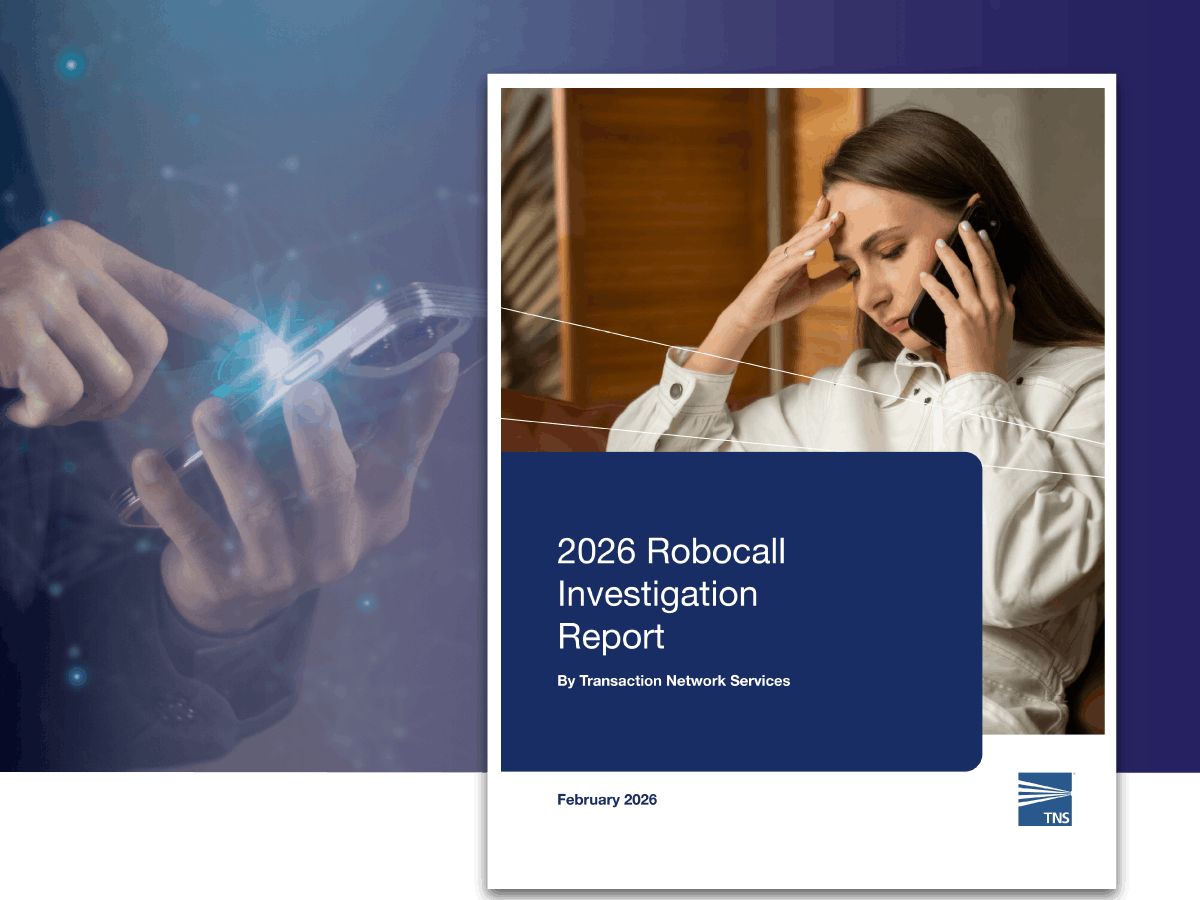With the tax season in full swing, we are seeing the expected jump in scam calls posing as the IRS or offering illegitimate tax services. The same scams reappear every year, but this year scammers claiming to offer tax debt relief services are driving much of the traffic according to insights from TNS’ robocall protection team.
How Does this Tax Relief Scam Call Work?
This scam is typically a pre-recorded message from someone posing as a part of tax relief services. The caller will typically leave a voicemail with a number to call back that will take the targeted victim to a live agent. The scammer will likely charge an up-front fee for pre-qualification, deem you as “qualified” for tax debt relief, and then never file the paperwork with the IRS.
How to Spot a Tax Relief Scam Call
- An agent calling to offer tax debt relief should cause immediate suspicion as there are many steps needed to qualify. In most cases, legitimate support would come in the form of an extension on time needed to pay the taxes back. An individual who is seeking this assistance would have to seek out the programs that offer legitimate debt relief as it is very unlikely that these groups would be cold calling.
- Highly optimistic promises are a major warning when receiving one of these calls. The scammer may claim that they can settle all your debt or a large portion of it, which is very rarely something that will happen. For someone who is carrying a large amount of debt and is desperate for help, they may be susceptible to believing these promises, but it will likely lead to the victim being in a worse situation.
- An overly simple process is another major indicator of a tax relief scam call. As mentioned before, being granted tax debt relief is not a quick process. The scammers may claim there is no need for a background check and fail to ask about your financial background before pre-qualifying the victim for tax debt relief. These are major red flags as those are the types of questions the IRS would need to know if they were to grant someone tax debt relief.
- A good way to identify a call as a scam is to ask about the company’s refund policy.
There are legitimate services that provide tax debt assistance such as the Better Business Bureau and the IRS’ guidelines on choosing tax professionals can help identify legitimate agencies.
How to Report and Stop Tax Relief Calls
It is best practice to never engage with unknown numbers and report phone numbers being used by scammers to your carrier. If you believe you are the victim of a scam, you can report it to your local police, state attorney’s general office and the FTC.
Call-blocking apps, including those powered by TNS Call Guardian®, are also a great resource for reporting and blocking unwanted robocalls.
John Haraburda is Product Lead for TNS Call Guardian® with specific responsibility for TNS’ Communications Market solutions.
Call Guardian is a registered trademark of Transaction Network Services, Inc.

Scam of the Month
Stay vigilant, share information about scams with others and check out our Scam of the Month page updates.





